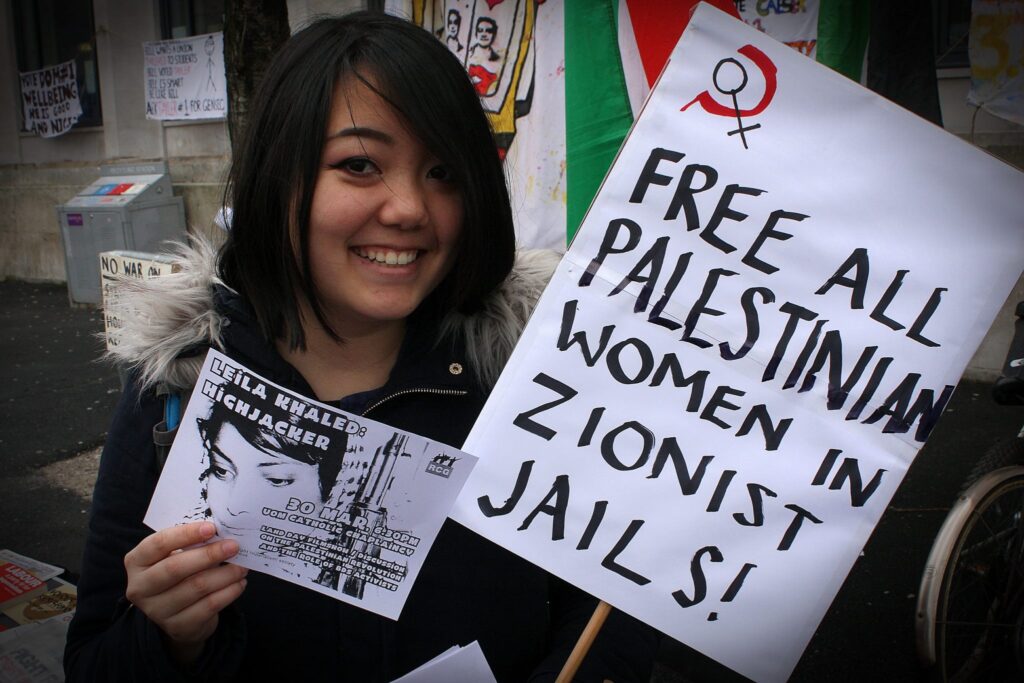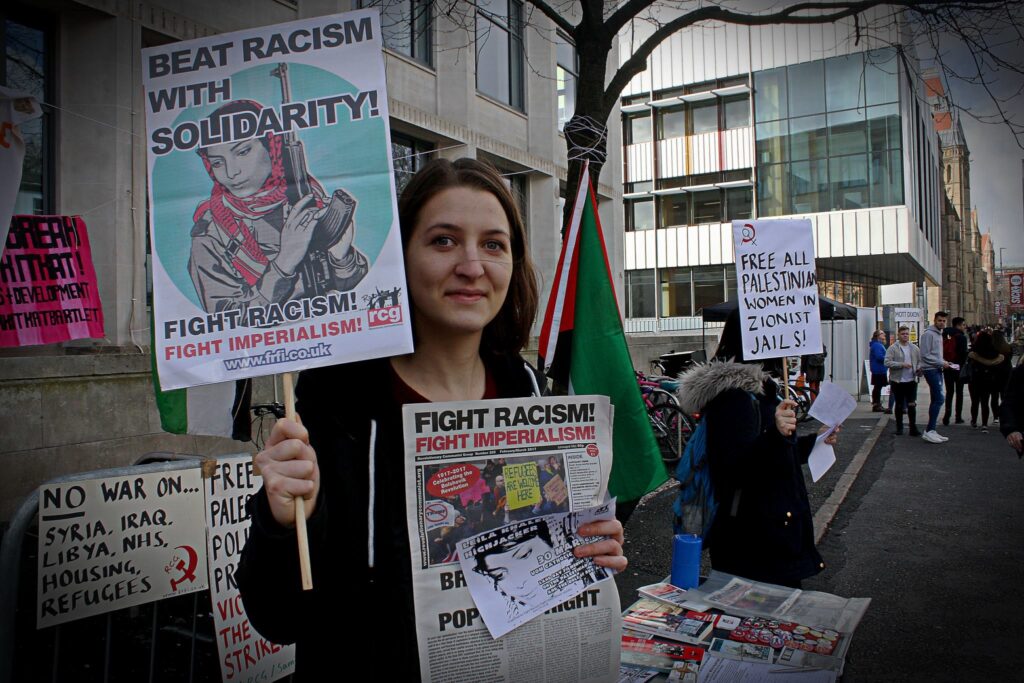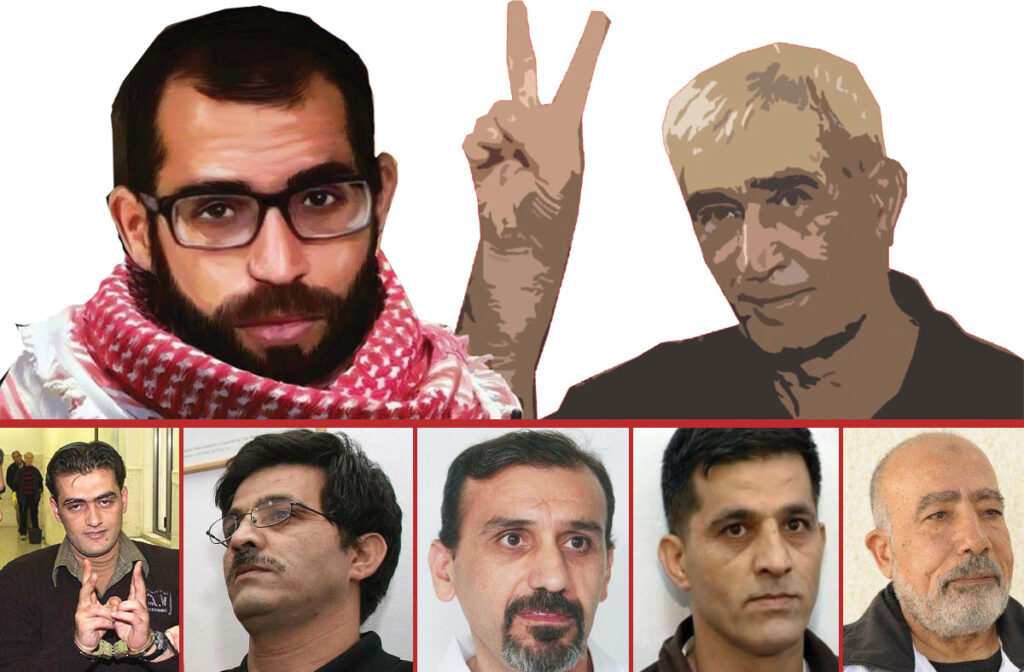 14 March 2017 marks the 11th anniversary of the attack on Jericho prison by Israeli occupation forces and the abduction of six Palestinian political prisoners. Ahmad Sa’adat, the General Secretary of the Popular Front for the Liberation of Palestine, his comrades Ahed Abu Ghoulmeh, Majdi Rimawi, Hamdi Qur’an and Basil al-Asmar, along with Fateh veteran leader Fouad Shobaki, were seized from the PA prison after US and British guards suddenly left their posts in a violent attack by Israeli occupation forces. Today, all six of the kidnapped Palestinians remain imprisoned. Two Palestinians were killed and 23 injured by occupation forces as they waged a military assault on the prison.
14 March 2017 marks the 11th anniversary of the attack on Jericho prison by Israeli occupation forces and the abduction of six Palestinian political prisoners. Ahmad Sa’adat, the General Secretary of the Popular Front for the Liberation of Palestine, his comrades Ahed Abu Ghoulmeh, Majdi Rimawi, Hamdi Qur’an and Basil al-Asmar, along with Fateh veteran leader Fouad Shobaki, were seized from the PA prison after US and British guards suddenly left their posts in a violent attack by Israeli occupation forces. Today, all six of the kidnapped Palestinians remain imprisoned. Two Palestinians were killed and 23 injured by occupation forces as they waged a military assault on the prison.
The attack on Jericho prison not only reflected yet another Israeli crime against the Palestinian people and the targeting of one of Palestine’s most prominent political leaders, Ahmad Sa’adat, the General Secretary of the Palestinian leftist party, the Popular Front for the Liberation of Palestine. It also clearly indicated the joint role of imperialist powers like the United States and the United Kingdom and the devastating impact of Palestinian Authority “security coordination” with Israel.
This anniversary is particularly poignant today, following the Israeli assassination of Palestinian youth leader Basil al-Araj, months after he was released from a Palestinian Authority prison. Thousands of Palestinians have taken the streets inside Palestine and in exile to demand an end to the policy of security coordination and Palestinian Authority attacks on Palestinian resistance. Just as the Palestinian Authority’s imprisonment of Ahmad Sa’adat and his comrades under US and British guard cannot be separated from their present imprisonment by the Israeli occupation, the PA’s arrest of al-Araj and his comrades cannot be separated from his murder by the Israeli occupation.
The imprisonment of Sa’adat and his comrades in a Palestinian Authority prison had been negotiated by parties representing a full array of the forces allied against the Palestinian people, including Mahmoud Abbas, Mohammed Dahlan, Saeb Erekat, Yasser Abed Rabbo, then-Prince Abdullah of Jordan, Omri Sharon and Tony Blair. Even inside the PA prison, the imprisoned Palestinians were further held under US and British guard, reflecting the dominant role of the United States and the European Union in ensuring Palestinian Authority subservience in the framework of security coordination. Some of those British guards had played a role in imprisoning Irish republican prisoners in the North of Ireland; today, former officers from the Royal Ulster Constabulary have trained PA security forces mandated to carry out security coordination. The prisoners themselves had been seized through trickery and deception by Palestinian Authority officials, including Tawfiq Tirawi, then the PA’s security chief.
Those US and British guards deliberately left their posts in order to provide a clear path for the Israeli attack on Jericho prison. Indeed, much of the weaponry with which the Israeli occupation forces attacked the prison, destroying much of it, was US-made or US-funded. Furthermore, in 2017 we also mark 100 years of British colonialism in Palestine and the issuance of the Balfour declaration – and 100 years of Palestinian resistance, which was met with brutal repression, mass jailings, home demolitions and the execution of Palestinian freedom strugglers at the hands of British colonial authorities, who introduced administrative detention to Palestine.
In the case of al-Araj, PA President Mahmoud Abbas publicly proclaimed his arrest and that of his comrades by PA forces in April 2016 to be a major coup for security coordination, declaring publicly and non-specifically that they were “planning an attack” and were “tracked down and arrested.” They remained for five months within PA prisons without charge, before entering a hunger strike that secured their release. Today, four of the five youths imprisoned with Basil al-Araj are held without charge or trial in Israeli prisons under administrative detention. Al-Araj’s own family home was repeatedly raided and ransacked and his family members subjected to continuous summons for interrogation, before he was shot down – resisting till the last breath – in el-Bireh on 6 March 2017.
Security coordination is a devastating and daily threat to the lives and freedom of Palestinians struggling to bring an end to Israeli occupation and settler colonialism. From Ahmad Sa’adat, Ahed Abu Ghoulmeh, Hamdi Qur’an, Majdi Rimawi, Basil al-Asmar and Fouad Shoubaki to Basil al-Araj, Palestinians continue to resist under the constant threat of imprisonment and death at the hands of occupation forces, with full economic, military and political support from the US, the UK, Canada and the European Union. There are approximately 6,500 Palestinians imprisoned today in Israeli jails. That number is supplemented by the political detainees in Palestinian Authority prisons, alongside Palestinians and strugglers for Palestine targeted for imprisonment and persecution in international prisons, from former prisoners and torture survivors like Rasmea Odeh in the United States to charity workers like the Holy Land Five to Lebanese struggler for Palestine Georges Ibrahim Abdallah, imprisoned for over 32 years in French prisons.
On the eleventh anniversary of the attack on Jericho prison, Samidoun Palestinian Prisoner Solidarity Network reiterates the call for freedom for all Palestinian political prisoners. We also reiterate and join in the demand heard loudly in the streets from thousands of Palestinians, including those in Ramallah, Dheisheh, Gaza, London, New York, Brussels, Berlin, Amman, Beirut, Rabat, Tunis, Washington DC and elsewhere seeking justice for Basil al-Araj, for an immediate end to PA security coordination with the Israeli occupation.
From Basil al-Araj to Ahmad Sa’adat, Palestinian leaders and symbols of resistance have been targeted for imprisonment and assassination with the complicity and support of governments around the world, including those of the United States, United Kingdom, Canada and European states. This anniversary is also an occasion to inspire all international movements standing with Palestine to escalate our actions to expose and put an end to that support, complicity and involvement, through building the Boycott, Divestment and Sanctions campaign, supporting Palestinian national liberation organizing and resistance, and building the struggle to free all Palestinian political prisoners and free the land and people of Palestine.

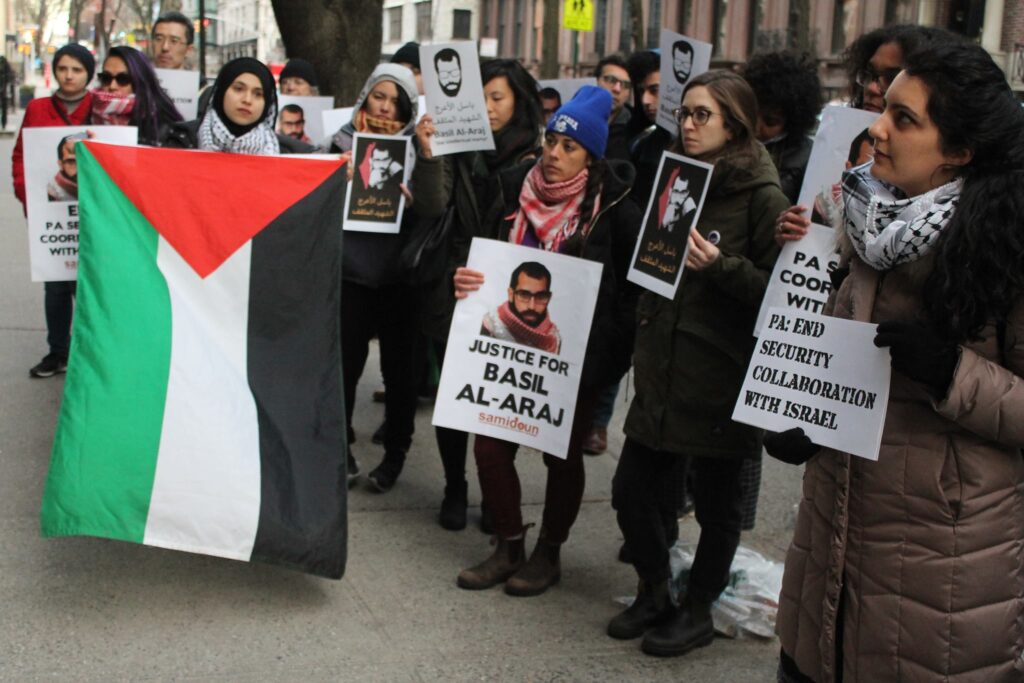 In a pre-dawn raid attacking a home in el-Bireh, Basil al-Araj, 31, a Palestinian youth activist and writer pursued by Israel for nearly a year, was assassinated by invading Israeli occupation forces the morning of March 6.
In a pre-dawn raid attacking a home in el-Bireh, Basil al-Araj, 31, a Palestinian youth activist and writer pursued by Israel for nearly a year, was assassinated by invading Israeli occupation forces the morning of March 6.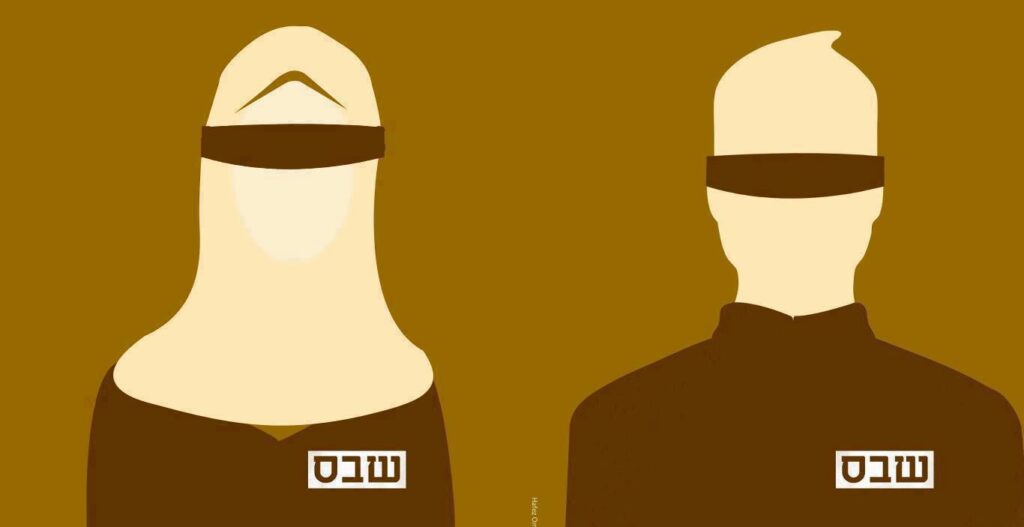 Israeli occupation authorities issued 35 administrative detention orders between 1 and 12 March,
Israeli occupation authorities issued 35 administrative detention orders between 1 and 12 March, 

 Over 200 universities, towns and cities around the world are participating in this week of action with a common theme: 100 years of colonialism in Palestine, 100 years of popular resistance!
Over 200 universities, towns and cities around the world are participating in this week of action with a common theme: 100 years of colonialism in Palestine, 100 years of popular resistance! There are approximately 6,500 Palestinians in prison, including 69 women and 350 children.
There are approximately 6,500 Palestinians in prison, including 69 women and 350 children. Hundreds of Palestinians are held in administrative detention without charge or trial. Their detention can be arbitrarily extended, 6 months at a time. 75 Palestinians have been imprisoned for over 25 years and six for over 30 years.
Hundreds of Palestinians are held in administrative detention without charge or trial. Their detention can be arbitrarily extended, 6 months at a time. 75 Palestinians have been imprisoned for over 25 years and six for over 30 years. They demanded: an end to the Belgian cooperation with Israeli institutions implicated in violations of international humanitarian law and human rights. The immediate end of the participation of the Belgian prosecutor’s office and judicial police and KU Leuven with Israeli police. The end to financing of such projects by the European Union.
They demanded: an end to the Belgian cooperation with Israeli institutions implicated in violations of international humanitarian law and human rights. The immediate end of the participation of the Belgian prosecutor’s office and judicial police and KU Leuven with Israeli police. The end to financing of such projects by the European Union. Five minutes later, three young people who were on their way called us on the telephone to tell us they had been stopped by the police. We joined them. 15 police officers and a dog encircled them.
Five minutes later, three young people who were on their way called us on the telephone to tell us they had been stopped by the police. We joined them. 15 police officers and a dog encircled them. This harassment is outrageous and yet another attack on the right to expression for Palestine in Charleroi. We will not allow this to happen.
This harassment is outrageous and yet another attack on the right to expression for Palestine in Charleroi. We will not allow this to happen.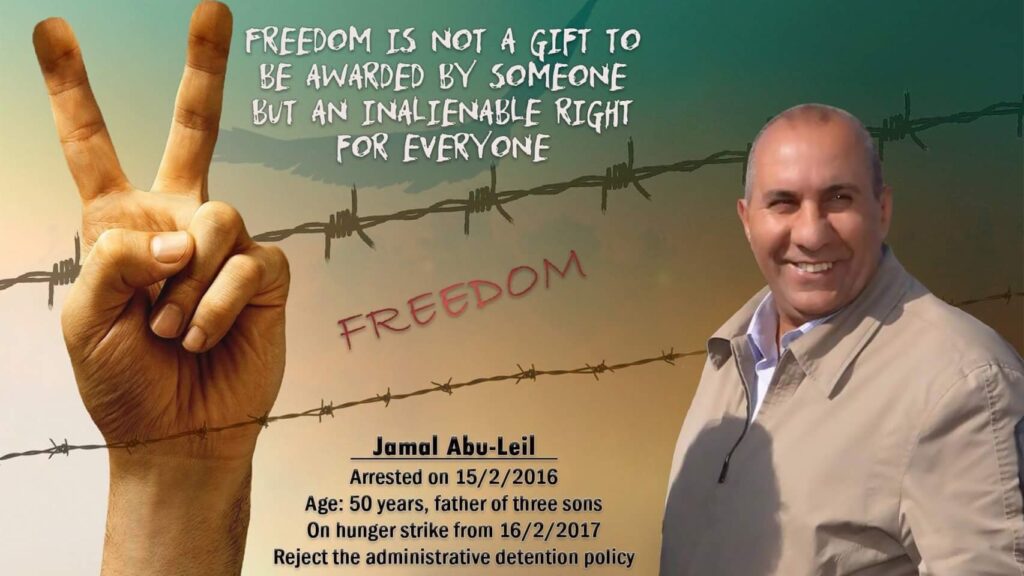 Palestinian prisoner
Palestinian prisoner Protesting Palestinians in Ramallah
Protesting Palestinians in Ramallah 





 In Berlin, Palestinian activists gathered outside the Palestinian mission to Germany to denounce the PA’s ongoing security coordination with Israel and demand real action after the killing of al-Araj.
In Berlin, Palestinian activists gathered outside the Palestinian mission to Germany to denounce the PA’s ongoing security coordination with Israel and demand real action after the killing of al-Araj. Meanwhile, in
Meanwhile, in 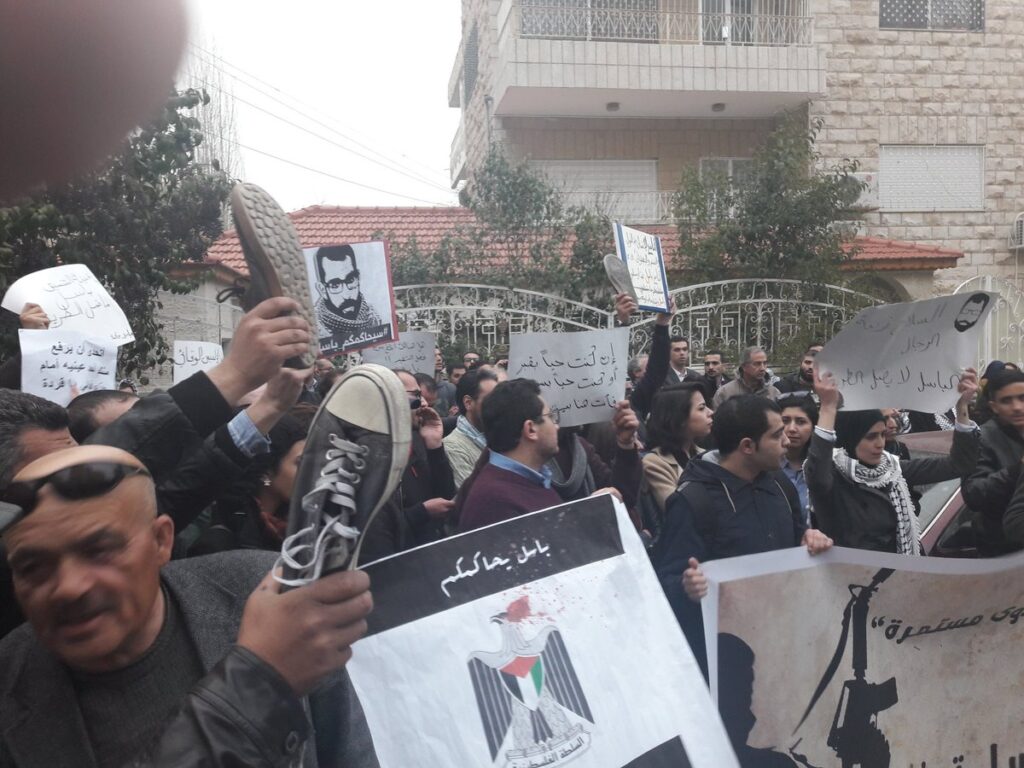
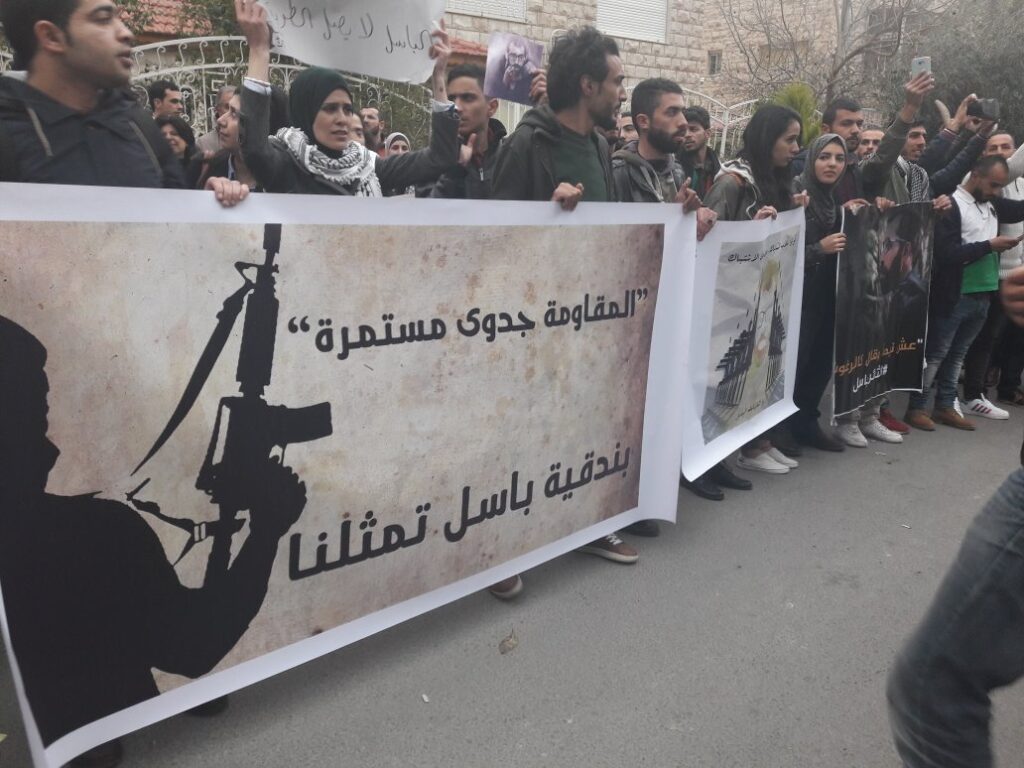
 Palestinian novelist
Palestinian novelist 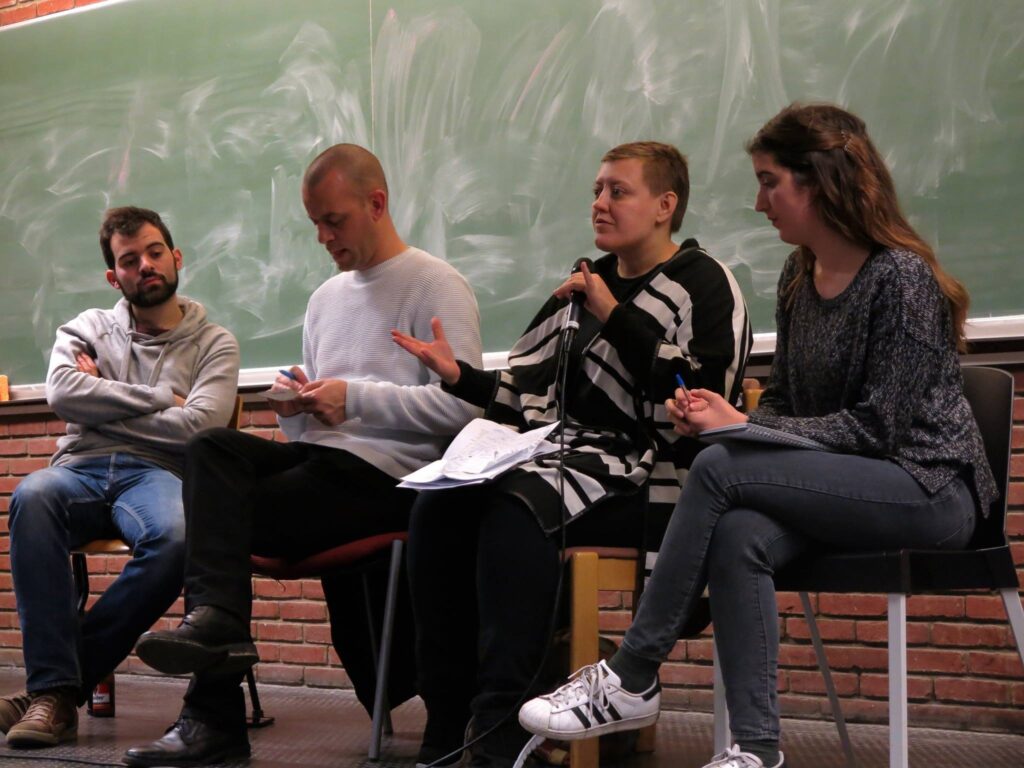
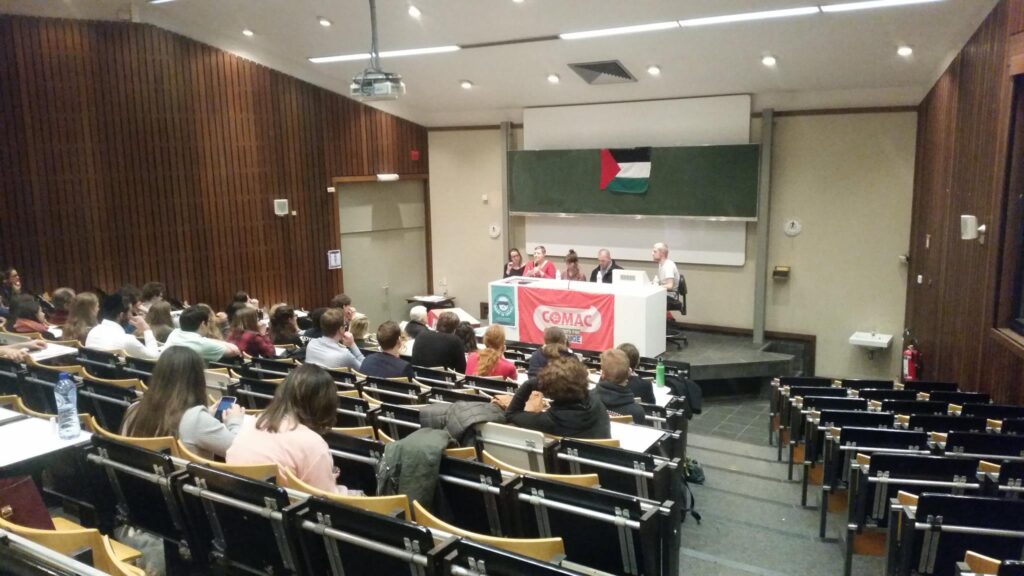
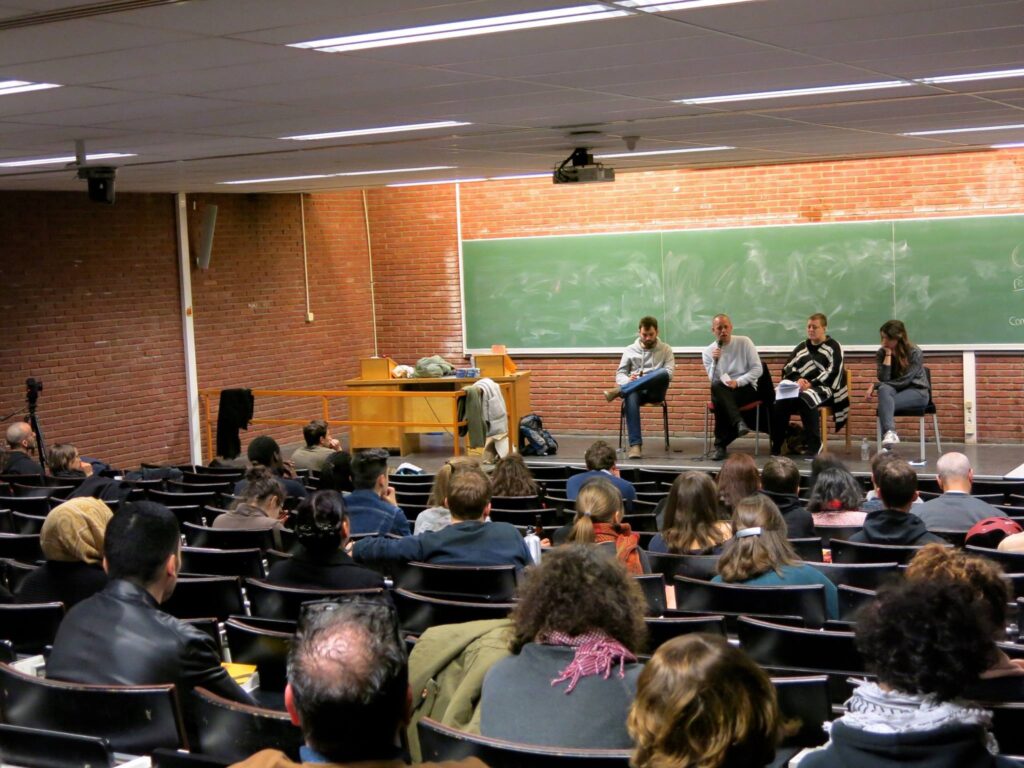
 In Milan, Italy on Friday, 10 March,
In Milan, Italy on Friday, 10 March, 

 As part of International Women’s Day actions in Paris and Israeli Apartheid Week activities, CAPJPO-EuroPalestine brought together around 40 people to participate in the Women’s March in Paris on 8 March, holding the images and names of Palestinian women political prisoners held in Israeli occupation prisons.
As part of International Women’s Day actions in Paris and Israeli Apartheid Week activities, CAPJPO-EuroPalestine brought together around 40 people to participate in the Women’s March in Paris on 8 March, holding the images and names of Palestinian women political prisoners held in Israeli occupation prisons. Among others, they higlighted the cases of women and girls, including lawyer
Among others, they higlighted the cases of women and girls, including lawyer  Full report and photos in French:
Full report and photos in French: 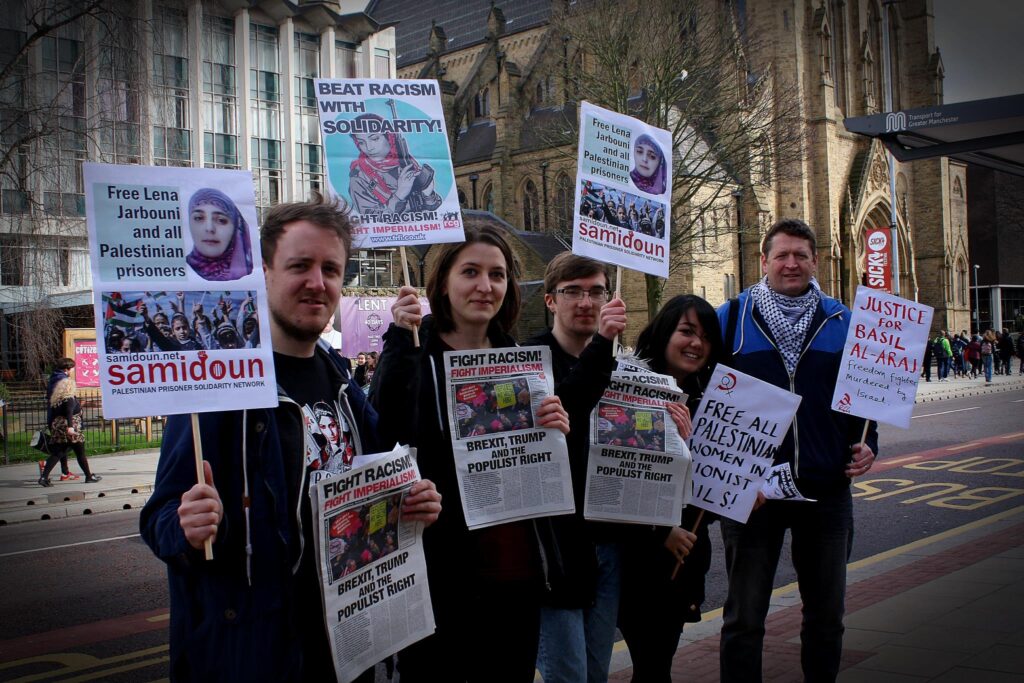 Meanwhile, in Manchester,
Meanwhile, in Manchester, 
